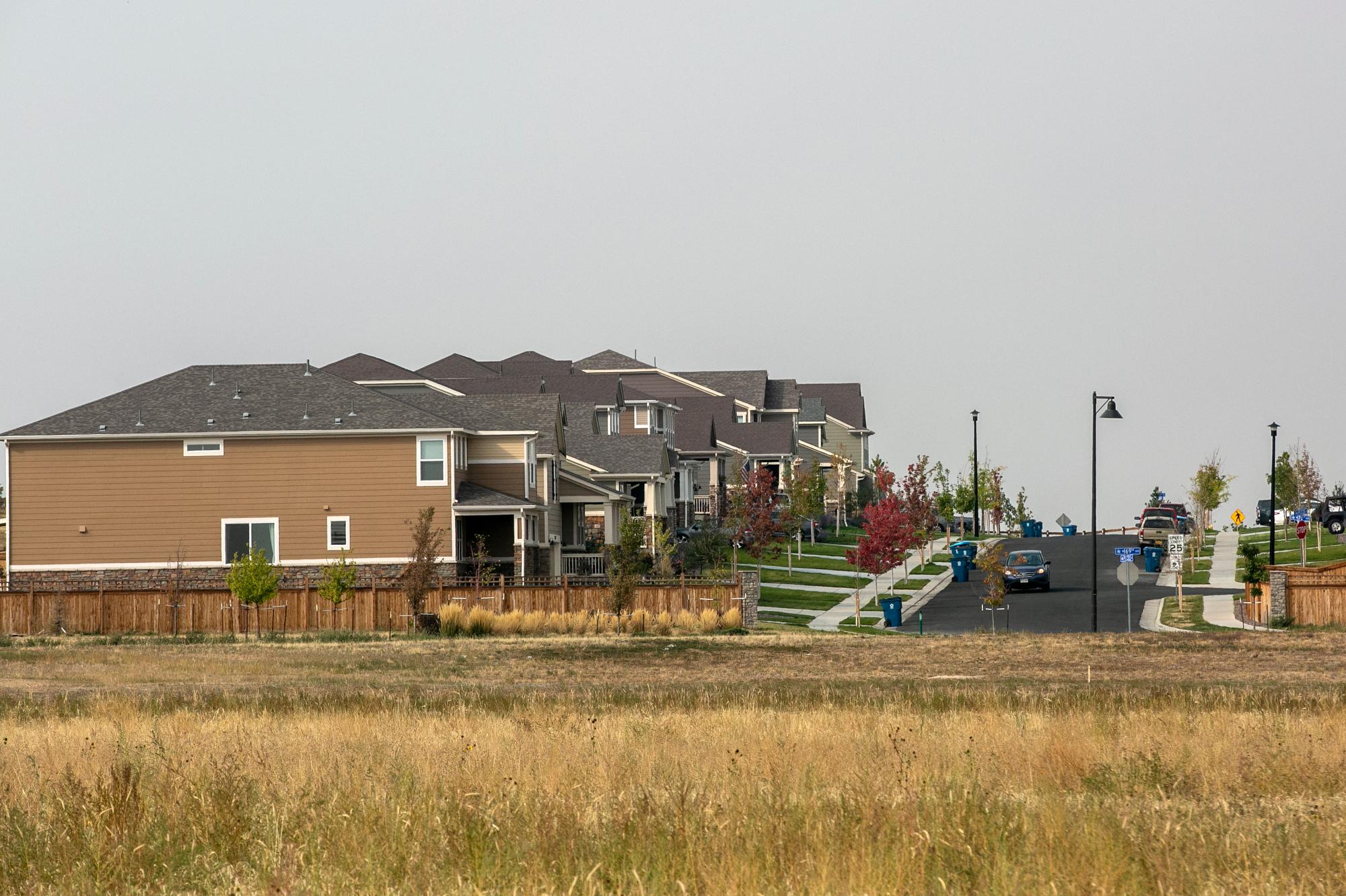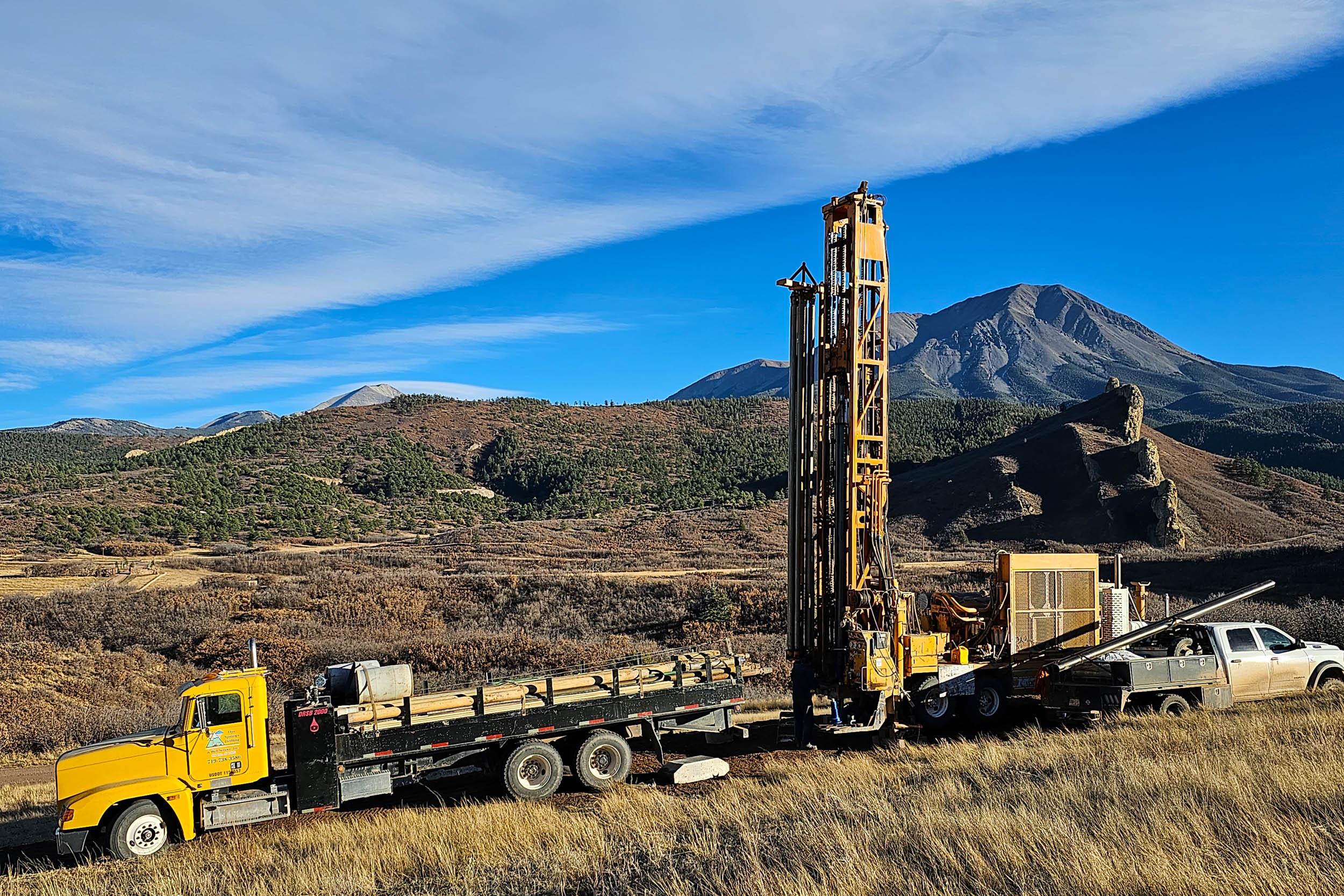
A bipartisan group of state lawmakers is considering ways to temporarily reduce property tax assessment rates across Colorado, slowing the increase of tax bills for many property owners.
“This is quite arguably the biggest tax policy move that we have in this session,” said state Sen. Chris Hansen, the Democrat leading the effort. “We're talking about hundreds of millions of dollars. This is gonna have a huge long term impact.”
The tax-reduction effort comes as property values leap ever-higher across Colorado. For example, some Denver properties saw increases of greater than 10 percent during last year’s reassessment, and values could see another large jump during next year’s cycle.
“I think it's a really urgent issue for the state. House prices, apartment prices are all going up and it means that assessed values are also going up,” Hansen said.
Hansen’s legislative effort — which has not yet produced a bill — also is meant to head off other efforts outside the Capitol.
Most notably, the business group Colorado Concern is preparing to put a property tax initiative on the ballot this year. If it were to be approved by voters, the proposed constitutional amendment would cap the growth of property taxes for at least ten years.
That proposal has lawmakers like Hansen worried. He doesn’t want to see tax limits written into the state constitution, since those dollars support schools, emergency services and more. He is negotiating with Colorado Concern in an effort to keep their proposal off the ballot, he said.
“My hope is to avoid a ballot initiative in this case, because I think we can do a better job if we respond to economic data (as a legislature) than doing a formula in the constitution,” Hansen said.
Hansen’s bipartisan group includes the influential Republican state Sen. Bob Rankin. They are working on legislation to temporarily lower assessment rates. Doing so would result in lower tax bills for property owners across the board, including both commercial and residential properties.
Assessment rates are one part of the property tax formula. They are set at a statewide level, and they combine with tax values and the local property tax rate to determine the yearly tax bill for each parcel.
Hansen and Rankin’s proposal is a replay of similar efforts last year — when they also teamed up on a legislative tax change prompted by a tax-cutting ballot measure. Their bill last year temporarily lowered assessment rates while largely canceling out Prop. 120, a separate effort to cut taxes at the ballot box. Voters later rejected Prop. 120.
Hansen expects his proposal could prevent local governments from collecting hundreds of millions of dollars in potential new revenues — but he warned that the ballot proposals would be even more impactful, totaling billions of dollars.
“The stakes are high and we need to get this right. And we're having, I think, a very thorough set of conversations to try to do that,” he said.
Hansen’s group also is considering another mechanism that could help lower-value properties in particular. They could offer tax exemptions that would reduce the taxable value of properties by a certain dollar amount — for example, by $30,000 per property. Hansen argued that approach would result in a greater reduction, proportionally, for less valuable properties.
State Rep. Colin Larson, a Republican involved in the Colorado Concern ballot initiative, said he’s skeptical Hansen’s ideas will go far enough. He believes the state needs permanent, “structural” fixes for property taxes, which he argues force people to pay for unrealized gains in the property market.
“If it’s something that’s temporary in nature, like a two-to-four year fix, it’s a non-starter. The ballot initiative will go forward,” Larson said. “If it’s a permanent fix, we’re open to it.”
In a statement, Colorado Concern CEO Mike Kopp warned some property owners face tax hikes above 20 percent in the coming year and said his measure would save the average homeowner anywhere from hundreds to thousands of dollars.
“We do remain open to a solution at the capitol, as long as the relief is meaningful and we can work together to make longer-term reforms. In the meantime, we continue to look at the various ballot options before us, knowing that Colorado voters are very anxious about the rising cost of living and have little appetite for huge new tax bills,” he wrote.
Scott Wasserman, president of the progressive Bell Policy Center, warned that tinkering with the assessment rate will have cascading side effects. Colorado already has among the lowest property tax rates in the country. Small, rural communities have long complained that they can’t collect enough property taxes to pay for essential services.
And if a tax cut led to a shortfall in local funding for schools, the state would have to backfill the loss, leading to less money for other state programs.
“Once you spend general fund money on something, it is very hard to take that out of the budget. You’re going to have to find a way to replace it,” Wasserman said.
Hansen said that lawmakers would make sure no local districts suffered. He believes that property taxes need to grow to higher levels over time, but he wants to avoid unsustainable spikes.
“We're not postulating a giant cut here. We're really thinking about how we slow the increase, and that's a very different discussion than reducing somebody's revenue,” he said.
Wasserman urged lawmakers to consider ways of generating new property tax revenue, especially if they’re going to make a general cut to property taxes. Meanwhile, he and Javier Mabrey, a candidate for House District 1, are pushing a ballot initiative that would charge fees on the owners of high-value property and use the revenues to address affordable housing or provide property tax relief to others.
Running a ballot measure can cost millions of dollars. If they can’t find financial support, Wasserman hopes a lawmaker will instead take up the idea as a bill, or that the legislature might use its power to refer his proposal directly to the ballot. Sen. Julie Gonzales, a Denver Democrat, confirmed on Monday that she was interested in the progressive effort.









